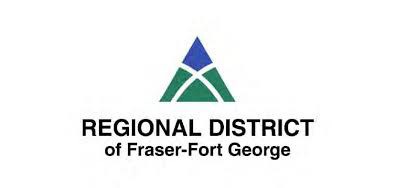Fraser-Fort George Regional District directors approved a $51.1 million operating budget for the year on Thursday.
The total is a $5.3-million increase from last year with most of the jump to be made up through a variety of revenue sources other than property taxes, which will total $19.3 million, up $450,090 or 2.4 per cent.
Fees and charges will cover 16.5 per cent of the total and prior years surplus will account for 16 per cent and grants 12 per cent.
For the average Prince George owner, defined as someone with a house worth $302,422, the regional district portion of the property tax bill will be $161.25, up $5.80 from last year. The rate per $100,000 assessed value will be $53.32.
In Mackenzie, the average bill, based on a house value of $152,521, will be $94.31, down $3.95 and the rate will be $61.84 per $100,000.
For McBride, the average bill, based on a house value of $132,137, will be $547.41, down $26.22, and the rate will be $414.28 per $100,000.
For Valemount, the average bill, based on a house value of $226,135, will be $640.09, up $64.27, and the rate will be $283.05 per $100,000.
In electoral area A, the rate will be $122.15, in area C, $134.63, in area D, $143.70, in area E, $160.89, in area F, $156.51, in area G, $114.48, and in area H, $131.97.
Solid waste management will continue to be the biggest expense at $22.8 million followed by 911 emergency response services at $6.5 million, protective services at $5.8 million and recreation and cultural services at $3.6 million.
FFGRD chair Art Kaehn said the budget reflects an investment in capital projects in a number of key areas. They include moving the fire operations call centre to the new fire hall and establishing a back up site, relocating the entrance to the Foothills landfill, converting the Mackenzie landfill to a transfer station, redesigning the Cummings Road transfer station, updating the landfill closure and post-closure care financial plan and updating the regional parks plan.
"We are excited to move forward on some big projects that will improve quality of life for residents in our region without a significant impact on taxation," he said.



